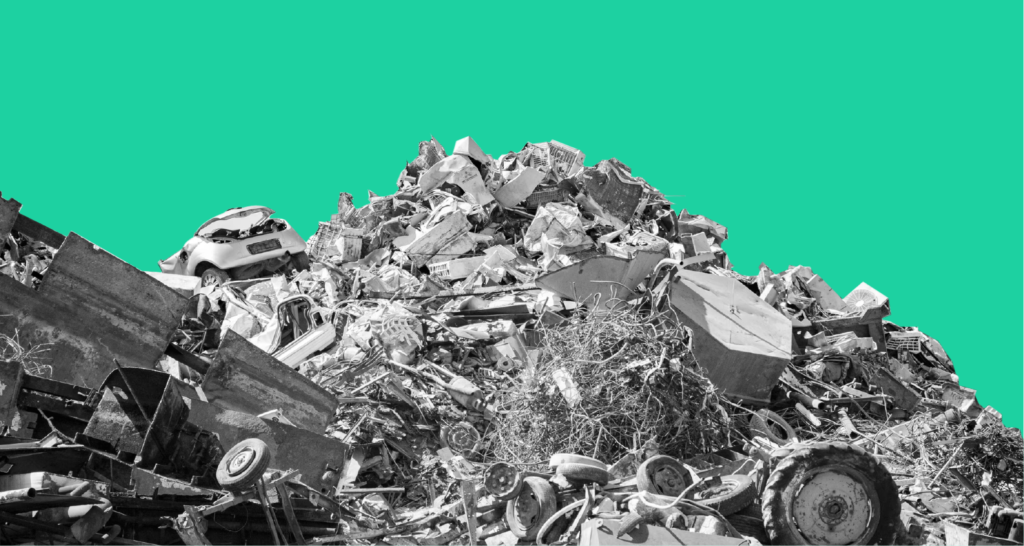Ever-increasing garbage and landfills are a grave problem for the global community. According to UNEP 11.2 billion tonnes of solid waste is collected worldwide and decay of the organic proportion of solid waste. So the ultimate solution to this problem is recycling which is the key to a sustainable, better, and green environment for present and upcoming generations.
Businesses worldwide are concerned about the growing pollution and are looking for viable solutions. Many international facilities like the San Diego International Airport and The Cura Co. are implementing Zero Waste initiatives. Therefore, recycling education must be delivered to all individuals from the executive level to front-line workers in all organizations, especially in hospitals, airports, and large facilities.
The decentralization of the sustainability team would make the organization an excellent recycling hub. We have divided this article into two sections: forming the sustainability team enriched with recycling education and tricks for an enforceable recycling plan. This article can be used by any hospital, airport, or large facility shifting towards zero-waste goals.

Formation of the Sustainability Team enriched with Recycling Education
All the roles and responsibilities of the sustainability team should be crystal clear. The sustainability team should be aware of recycling education. They should be ready to adopt a recycling attitude because these two factors will enable them to be a highly-functioning sustainability team.
Upper Management Committee
The sustainability team should reflect on recycling habits from top to bottom. However, the upper and senior-level management should be ready to spread awareness about and comply with recycling education. The upper management committee is responsible for decision-making for finances. This committee is also known as the sustainability leadership council (SLC).
Green Team/ Ecology Committee
The green team is the collection of sub-committees of the directors of different departments who want to adopt recycling solutions for their organizations. Each sub-committee is preliminarily assigned a particular task such as purchasing, saving energy, water, etc. The green team is also known as the recycling task force because this committee is also responsible for accomplishing day-to-day recycling tasks. Recycling solutions for hospitals, airports, and other large facilities are also provided by the green teams of the respective organizations.
Recycling Team Manager
The core connecting and managing person of an organization’s ecology committee is the recycling team manager. The recycling team manager is the main person of the sustainability team with in-depth recycling education. They have many duties and responsibilities to perform, like communication between the sub-committees, reporting to the upper management committee, and overseeing the activities of the recycling plant.
Sustainable departmental coordinators
The coordinators are responsible for communication within the department and have the limited privilege to carry out specific responsibilities. The sustainable departmental coordinators ensure that all of the must-dos are appropriately done within the department, and no individual’s working is against the recycling education and plan.
Value Analysis Committee (VACs)
Value Analysis Committees are the most critical groups for recycling solutions for airports, hospitals, and large facilities. This committee is mainly present in organizations with supply chains and creates a plan for solving various performance-related problems such as advanced technology, cost, operation, etc. The value analysis committee points out the products and services which can help the organization to become environmentally friendly. Moreover, the value analysis committee seeks eco-friendly solutions and adopts sustainable principles while purchasing within the organization.

Tips for an Enforceable Recycling Plan
A recycling plan has to be executable and enforceable within the organizations. A perfectly workable plan should be catered to carefully as per the recycling education and principles. We have listed down tricks presented by the recycling experts to get started.
Begin with tiny steps
The first and foremost step is defining goals that seem small but can bring change in the long run. Additionally, a good initiative is starting with small sustainability with a high IQ in recycling education.
Analyze the progress regularly
To be on the green track, the recycling team manager should call for regular meetings to analyze the progress. These meetings can be called quarterly or bi-yearly. In most cases, quarterly meetings work best. Moreover, year-end or year-beginning meetings can be great opportunities to set green goals according to market trends.
Communicate comprehensively
Another rule of thumb followed by the e-commerce giants and other companies is to “spread the word” through effective measures such as social media, newsletters, etc. The sustainability team should set monthly eco-goals at the year-end or year-beginning meetings, and newsletters should be circulated to spread your views in your community.

Technologize the recycling plan
Technology makes everything fun and easy. Many products are available in the market that can help achieve the green goals. Most of the time, people are unaware of the difference between recyclables and landfills. According to waste360, 20% of Americans place some trash in the recycling bin even if they are unsure of its recyclability. In this case, TrashBot can be a great solution, an advanced blend of computer vision, robotics, and artificial intelligence for separating recyclables from landfills.
You can see TrashBot in action by clicking here.

